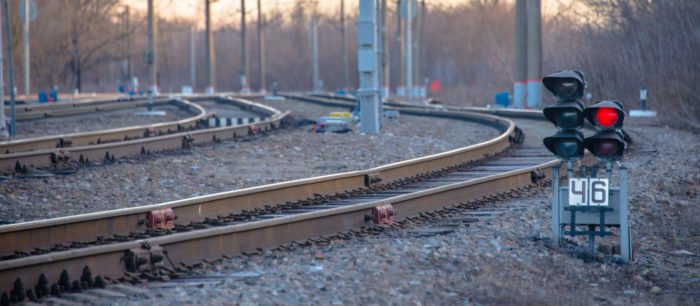Railroads on Track To Miss Positive Train Control Deadline
The deadline for installing and implementing positive train control, known as PTC, is Dec. 31, 2018. It likely will come and go, with a majority of the country’s railways basically arguing they don’t have enough resources to meet it.
Industry leaders testifying in front of the House Subcommittee on Railroads, Pipelines, and Hazardous Materials said as much during a session sparked by the Dec. 18, 2017, derailment near Tacoma, Wash. Preventable if PTC had been operating, the accident killed three and injured 70 when the Amtrak train came flying through a 30-mile-per-hour curve at nearly three times the speed limit.
“Not only do you have to install it, you have to make sure it works,” Edward Hamberger, president of the Association of American Railroads, said in a Washington Post article titled “Railroad officials tell Congress many won’t meet deadline for lifesaving automatic braking systems.”
Hamberger noted the complexity of the system and the $10 billion price tag. The National Transportation Safety Board (NTSB) noted the 153 crashes, the 300 deaths and the 6,800 injuries that could have been avoided.
“The NTSB is extremely concerned about any further delay to this lifesaving technology,” Chairman Robert Sumwalt testified. “From a safety perspective, that delay is unacceptable.”
Oregon Democratic Rep. Peter DeFazio added, “I hear a lot about the cost and the complexity. Let’s talk about the lives that have been lost. We’re going to kill more people because you are not doing your job.”
California Republican Rep. Jeff Denham, the subcommittee’s chairman, neither minced words.
“There are some that have put PTC in place,” Denham said. “There are others who haven’t started. This has gone on for 10 years. Ignoring a congressional mandate will not be tolerated. I think the American public is sick of excuses.”
In 2008, Congress mandated railroads to install PTC by the end of 2015. It later extended the time frame to the end of 2018. If two more years are allowed, wrecks will continue to mount, because the question is not if, but when, those wrecks will kill and maim.
PTC equips train with an automated response that signals for braking. It is designed to slow speeding trains from colliding, derailing and going the wrong way on a main-line switch. The technology “is capable of automatically controlling train speeds and movements should a train operator fail to take appropriate action for the conditions at hand,” states the U.S. Department of Transportation’s Federal Railroad Administration Web site. “For example, PTC can enforce a train to a stop before it passes a signal displaying a stop indication, or before diverging on a switch improperly lined, thereby averting a potential collision. PTC systems must also provide for interoperability in a manner that allows for equipped locomotives traversing other railroad’s PTC-equipped territories to communicate with and respond to that railroad’s PTC system, including uninterrupted movements over property boundaries.”
So what if it costs $10 billion? There is no price tag on human life. Amtrak engineer Michael Kempf, 54, of Georgia, and conductor Michael Cella, 36, of Florida, both would be alive today had PTC been up and running in Cayce, S.C., where their train crashed into an empty one in their path. Christopher Foley, 28, of Virginia, would be alive, too, had PTC been up and running in Crozet, W.Va. Foley was a passenger in a truck stuck on the tracks as an Amtrak train approached. The collision killed him and injured several of the 450 Republicans and members of their families heading to an annual retreat in White Sulphur Springs, from Washington D.C.
“2018’s real,” Massachusetts Democratic Rep. Michael Capuano, a ranking member of the subcommittee, testified, according to The Hill in an article titled “Lawmakers scold railroads over delay in safety upgrades.” “And I will tell you there is not a single person on this side of the table that’s going to sit here and quietly just accept the next accident after that deadline. The blame for that will be laid on the people who deserve the blame, people who are not doing their job.”
Richard Anderson, Amtrak’s CEO, said that, in the interest of public safety, the railroad would not traverse tracks that are not PTC-compliant.
“And for those instances where we will not have PTC even after the 12/31 deadline, because it’s not required by statute, we have a question about whether we’re going to operate at all,” Anderson said. “And I doubt we will.”
How many routes will be disrupted is not clear, but considering the fact that more than half of the railways in question are not PTC-compliant, it is sure to impact both freight and travel drastically.
“Especially at risk under Anderson’s edict are trains operating over tracks not owned by Class I railroads,” reports Trains magazine in an article titled “UPDATE: Amtrak CEO says passenger trains will not run over track without PTC or PTC waiver.” “These include lines around major cities, such as Metro-North east and north of New York City, Metra on the Hiawatha corridor, Tri-Rail and SunRail in Florida, and the Terminal Railroad Association for all trains serving St. Louis. Long distance trains running over short lines include the Cardinal on Virginia’s Buckingham Branch Railroad and the Empire Builder on the Minnesota Commercial in the Twin Cities.”
Share This



